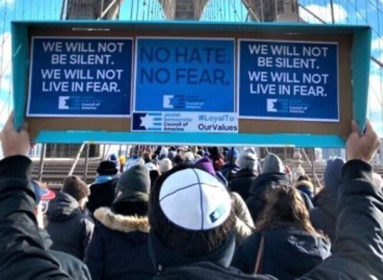The 25th anniversary of the events of June 4, 1989
By Vera Schwarcz
Last week a friend of mine, Xu Youyu, got arrested in Beijing. A noted philosopher, his only crime was to gather a dozen scholars to discuss the history behind the June 4th events of 1989. He had not attacked the government; he did not demonstrate in the streets. He simply was unwilling to bend into the winds of amnesia sweeping across China this chilly spring.
A week before his arrest, my friend published an essay entitled The Supreme Dignity and Preciousness of Memory. In it he quoted some of my work on Chinese and Jewish cultural memory. He argued that China wore a cloth full of memory holes; that unlike Jewish tradition that mandates recollection as a religious obligation, Chinese have grown accustomed to enforced forgetting. He also made an impassioned plea that his compatriots impart to each other every bit of what they remember from history, even if it causes shame and grief.
Because Xu Youyu’s voice has been silenced (for now) in China, those of us who remember 1989 must speak of it this year. Imagine an entire generation born in China with no idea that students were killed in Tiananmen Square on June 4. I meet this generation in my classes at Wesleyan University every day. Intelligent, thoughtful, well-raised young people who love their country and know nothing of its recent history other than what the Party dictates. When two of these Chinese students attended a recent conference about the 25th anniversary of 1989 at Harvard last month, they came back shaken to the core. It was as if their entire inner world had crumbled. How can they ever believe their teachers, parents, and mentors when they never heard a shred of truth from them? This is the tragedy that Xu Youyu sought to avert.
The Jewish prayer of Kaddish does not mention the dead. Instead it praises the Creator whose name is synonymous with truth. The mothers who lost sons and daughters in Tiananmen Square cannot say words of Kaddish. Not simply because the words of the ancient prayer are unfamiliar to them. Also because the government forbids any mention of those who died in the dark night when tanks plowed into the ranks of unarmed protesters weakened by a hunger strike and waning hopes for the reform of the regime.
I was in China in April and May 1989 and left shortly after martial law was declared in Beijing on May 20. I observed the fervor of college students on campus and on the streets. Unlike American fantasies that this was our kind of “democracy” movement, what was unfolding in China was a century-old longing for a little less corruption and a little less autocracy in public life.
Even these modest, rather Confucian, aspirations proved intolerable in the eyes of China’s rulers. A small minority in the Party – headed by Premier Zhao Ziyang – argued for dialogue with the students. By the time Zhao went down to Tiananmen Square it was too little, too late. The order to shoot had already been given. Zhao was put under house arrest shortly thereafter.
What I remember from those heady days is the naked idealism of the students. Wrapped in Chinese flags and singing the Communist Internationale, they hoped to galvanize the heart of their countrymen. And they did. In China, when educated youth cry out, then merchants, taxi drivers, factory workers and teachers respond with passionate concern. I never recall Beijing (in my 40 years of travel there) being as open, as friendly and as hopeful as it was in the spring of 1989. Fares on buses were forgiven; drinks were taken to the Square for the hundreds of thousands who had joined the hunger strike. When the shooting started, the same ordinary citizens took huge risks to take students to the hospital, to hide the wounded, to lead a few out of the country.
More than the solitary “tank man” (who faced a row of armored vehicles alone and whose image suited Western notions of individualism), I want to pay tribute to the visionary students and ordinary Beijing citizens who stood by them the night dreams were crushed in Tiananmen Square.
Two years later, when I returned to China, no one was allowed to talk about what had happened. Universities had been purged of all “reactionaries” who had dared to call for a more open China. The fact that 5000 journalists had signed a petition for freedom of the press had been forgotten. The fact that China’s own public media, including television, had been remarkably favorable to the student movement in the weeks before the crackdown has been expunged from the archives. The only reminder that endured in 1991 was the blood stains on the carts of vegetable carriers in Beijing. The most ordinary citizens of Beijing had refused to wash them off.
Twenty-five years later there are no more bloodstains. Nothing remains to remind a younger generation of the birth and death of dreams in 1989. Into this deafening silence, I am inserting my own Kaddish. June 4th this year coincides with the holiday of Shavuot – the day we commemorate the giving of the Torah. In the name of all the truth I hold dear in my own Jewish tradition, I will observe a moment of silence at 10 a.m. – along with thousands of friends around the globe. We will simply stop to think about the unremembered dead of Tiananmen Square. Perhaps the force of our joint recollection will create a butterfly effect in Beijing. Perhaps my friend Xu Youyu will sense that he is not alone. Perhaps by this time next year thinking truthfully about history will no longer be a crime in China.
Dr. Vera Schwarcz is Freeman Professor of History & East Asian Studies at Wesleyan University in Middletown.







 Southern New England Jewish Ledger
Southern New England Jewish Ledger














